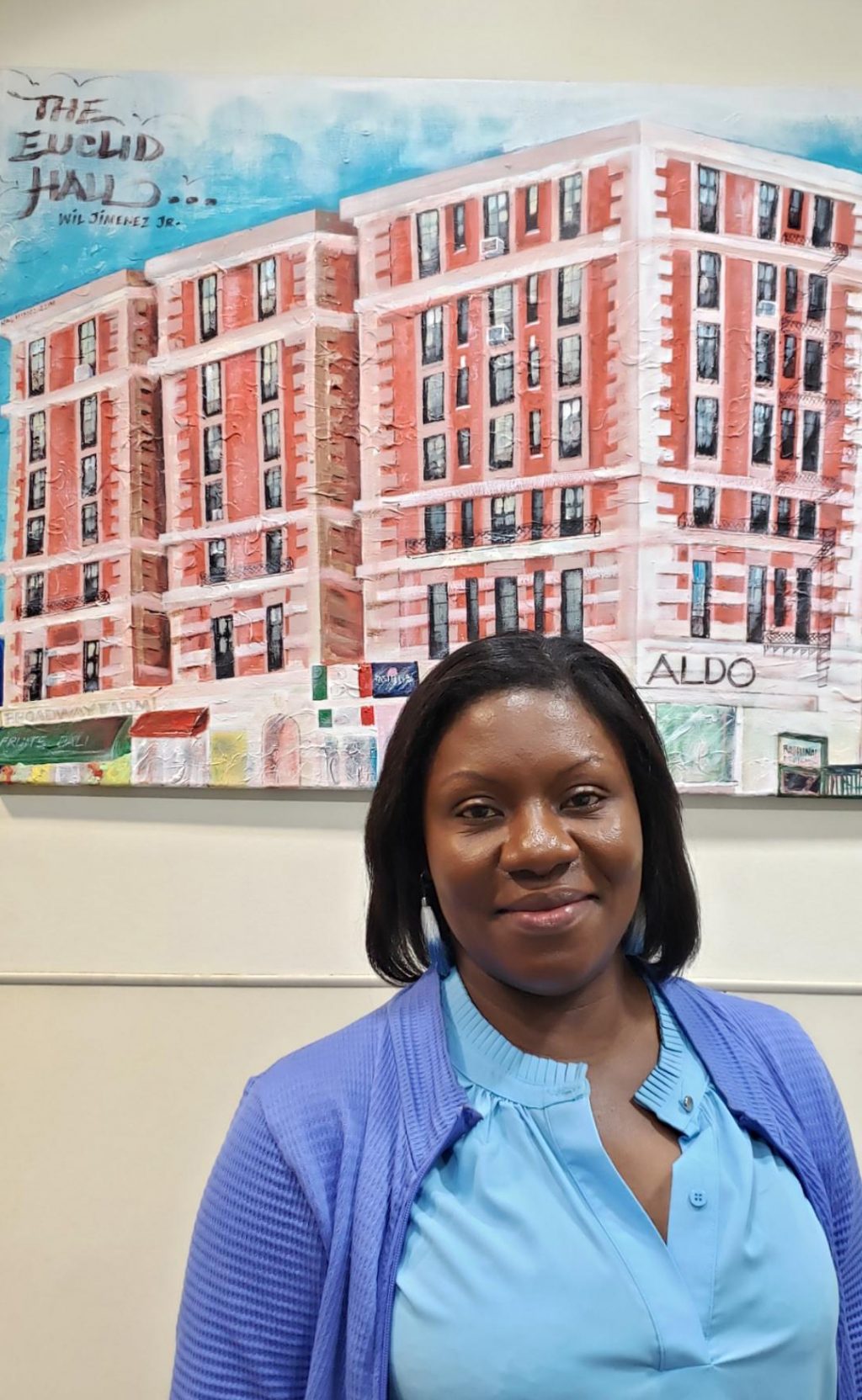Interviewed in 2020 for the 6sqft newsletter, architect John Cetra of Cetra/Ruddy spoke proudly of the work the firm had done three decades before. “A project we did in the early ’90s was Euclid Hall on 86th Street and Broadway. Then an SRO in a bad state of repair,” Cetra noted, “The city had taken back the building and sold it to a non-profit housing provider called the West Side Federation for Senior and Supportive Housing (WSFSSH) led by two pioneering women, Laura Jervis and Laura Tavormina, referred to as “the two Lauras.” We got involved with them and renovated the building. We kept it as an SRO, but now it was a supportive SRO that assisted people with learning life skills while having a safe place to live. WSFSSH went in and provided a tremendous amount of support services to the people who were living there.”
Nancy Ruddy co-founded Cetra/Ruddy with her husband John Cetra. She has vivid memories of the time, care, research, design skills, and perfectionism involved in the adaptive reuse of Euclid Hall. The firm joined the West Side Federation in their idealism and shared goals to transform the building that would give formerly homeless residents a sense of dignity and pride in their new home. Though there were no interior details that had been preserved before the project started in the large mid-19th-century building, the exterior was both exceptionally beautiful and badly in need of repair. “We repaired or reproduced the intricate metal Juliet balconies and reproduced the rooftop balustrade that was no longer on the building. We used modern, less expensive materials than the original stone for these exterior decorative elements, which would have been too costly,” said Ruddy. Noting that this was the firm’s first supportive housing project, Ruddy said much time was spent researching the idea of home, the psychology of space and color, and creating spaces that were nurturing and non-institutional. We had to get into the heads of the future residents and not use our own middle-class perceptions. We studied what had worked in the past and what the next chapter of this type of housing could and should be. The resulting Euclid Hall renovation by Cetra/Ruddy introduced innovations that were taken up by many architects in the years to come. Ruddy described, for example, the use of different colors and floor patterns specific to particular floors to assist in wayfinding, the hallways were designed to be social meeting places, and the bright light of the glass-walled communal kitchens was designed to be welcoming and encouraging socializing. Ruddy explained her involvement extended to helping residents learn to cook “because I love to cook.”
Today, Euclid Hall is still a West Side Federation co-ed SRO that provides an impressive range of clinical and social services for its 273 residents. Tenants are referred to Euclid Hall through the NYC Department of Homeless Services. All are 50 years or older and have a history of homelessness. Some have been managing substance abuse, and many have mental health problems.
Evelyn Agbesi, MSW, came to the United States from Ghana at age 20. Education was a priority. She earned her GED, and BA from NYU and went on to complete a Master’s at Hunter College School of Social Work. In 2005, she worked with the West Side Federation as a BSW student intern from NYU at the Marseille Building, The Kurt Leah Schneider Apartments, and The Fania Gersham House of WSFSSH; she joined the agency in 2007.
Once she had her Masters in hand, she came on to work full-time at Euclid Hall in 2010. Evelyn rose steadily through the ranks, most recently becoming Director of Clinical and Social Services. She describes the staff and residents as being part of a tight-knit community. “The staff are incredibly dedicated and the residents are very appreciative of the supportive services available to them.”
Evelyn explained in more detail that in addition to case workers, the staff includes an onsite psychiatrist through Janian Medical Care, an affiliate of the Center for Urban Community Services (CUCS). Janion services specialize in care for homeless and formerly homeless individuals provided through CUCS and visiting nurses through Lenox Hill House Calls. Partnerships with various agencies provide care services and onsite supportive services for residents without insurance coverage for home care services. Recreational activities are arranged according to the interest expressed by residents. These have included a recent excursion to a Knicks game, outings to Broadway Shows, Circle Line trips, weekly bingo games, celebrations of religious holidays, and summertime BBQs that involve the group traveling by rented bus coach to Welch Lake upstate. And, by tenant request, a trip to Walmart has been arranged for the near future.
Evelyn’s job is clearly demanding, but she appreciates having a schedule that is flexible enough for her to have time for her 11-year-old twins. The job also satisfies her commitment to the community. This is something, she said, “is needed not just in the neighborhood but in the world.”
In sync with Evelyn’s perspective, Cetra’s view of his firm’s renovation of the large, historic building specially marks its contribution to the Upper West Side, “…that means the whole community is much more diversified, not very wealthy or extreme cases of living below the poverty line. It’s really quite a mix.”

 By
By